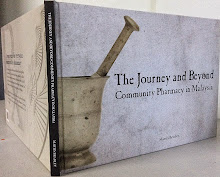 The rain had stopped. My aging jeep eased into the quietly forgotten street of Perak’s Papan. I had expected to see the town inundated with the paraphernalia of filmmaking – tracks for cameras, huge spotlights threatening to fall on unsuspecting bystanders and a dictatorial director bellowing out instructions/orders vis-à-vis Cecil B. Demille.
The rain had stopped. My aging jeep eased into the quietly forgotten street of Perak’s Papan. I had expected to see the town inundated with the paraphernalia of filmmaking – tracks for cameras, huge spotlights threatening to fall on unsuspecting bystanders and a dictatorial director bellowing out instructions/orders vis-à-vis Cecil B. Demille. Bernard Chauly, of Red Communications Sdn Bhd, is a much quieter director, who seems to believe in keeping the filmic disruption to a bare minimum. He, his producer Angela Rodrigues, their team of talented actors and crew came together at Papan, to reveal the story of that town’s Second World War heroine – Sybil Kathigasu.
TV channel Astro Citra (available in the Mustika pack) commissioned Red Communications, as part of their ‘Suatu Ketika’ (a Time in the Past) series, to make an eight-part drama, of one hour episodes. This story follows the extraordinary account of Sybil Kathigasu (played by Elaine Daly), from the moment she hears of the Japanese invading, through her experiences in the anti-Japanese resistance movement, and beyond. The series closely follows her collective memoirs, first published in 1954 as ‘No Dram of Mercy’.
Sybil Daly, a Eurasian mid-wife, born to an Irish-Indian planter father and French-Armenian mother, was married to Dr Abdon Clement Kathigasu, in 1919. She ran a clinic at 141 Brewster Road (now Jalan Sultan Idris Shah), Ipoh. When the Japanese invaded Ipoh (December 1941), Sybil escaped to run a shop-house dispensary at 74 Main Road, Papan. It is there that Sybil’s story really begins.
As time, and the Japanese occupation, wore on, Sybil’s dispensary, which by then doubled as a free clinic, eventually gained access to a shortwave radio, tuned into BBC broadcasts. From that time, the dispensary slowly became the central point for information and local dissidence.
Over time Sybil, in her husband’s absence, tended injured guerrillas, brought to the clinic at night. She was pro-colonial and disagreed with the ethics of the burgeoning communist guerrillas, but was a staunch humanitarian and realised that the guerrillas and she had a common enemy – the Japanese occupation force.
First her husband was arrested by the Japanese, next came Sybil. Expert Japanese interrogators, who were trying to extract vital information about the Chinese communist guerrillas, tortured Sybil. She was beaten, malnourished, sleep deprived and generally maltreated in the Japanese quest to learn more from her.
As if was not enough, Japanese interrogators arrested and tortured Sybil’s children too. In their quest for information, Sybil’s youngest daughter Dawn (aged 7) was hung from a tree, suspended over a fire while Sybil watched and was severely beaten. Luckily, Dawn survived her ordeal. Sybil, sentenced to death, had her sentence commuted to life imprisonment in Batu Gajah Prison - her husband, and adopted son William, imprisoned in Taiping Prison.
The British liberated Malaya in 1945, releasing Sybil from her incarceration, her near fatal wounds treated in Batu Gajah Hospital, Perak. Still in pain, Sybil spent her last days in England, undergoing operation after operation to salve her pain-racked body. Sybil Kathigsu, awarded the George Medal for bravery in 1947, died in England, still in pain, June 1948.
It is only fitting that the actress who plays the role of the heroine Sybil in the eight part TV series, is none other than Elaine Daly – a well-known Malaysian actress, former Miss Malaysia Universe, and a distant relative of Sybil’s.
I drove away thoughtfully. I was considering my day - whether to take director Bernard Chauly up on his offer of a one-line speaking role, or not. On reflection, maybe Malaysian TV is not quite ready for me – yet.
Working title – ‘Apa Dosaku’ (What is my sin) airs on Astro Citra channel in March 2010









No comments:
Post a Comment